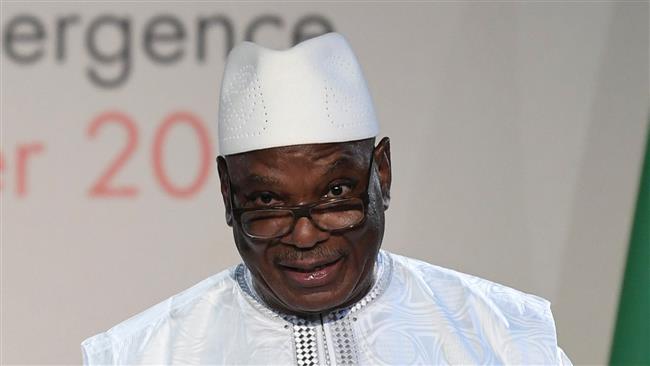'Imperialist agenda' behind political turmoil in Gambia: Pundit
Post-election developments have caused political unrest in Gambia and the prospect of a foreign military intervention has made the situation more sophisticated. Despite initially congratulating opposition leader Adama Barrow for his victory in the December 1 presidential election, incumbent president Yahya Jammeh insists that there were irregularities in the voting process.
Abayomi Azikiwe, editor of Pan-African News Wire from Detroit, referred to the United States and the United Kingdom as two imperialist powers which are behind the ongoing political turbulence in Gambia.
The role of America, Britain and the European Union in Africa should not be ignored, because “they are the ones who supply resources to many of the military forces throughout the West African region,” he told Press TV on Thursday night.
“The role of former colonial powers and the dominant neocolonial power,” which is the United States, is clearly rampant in political developments of West Africa, because Britain and America have been “involved in massive military interventions all across Africa,” he said.
The imperialist powers, he said, resort to their allied governments in Africa to implement their hegemonic agenda in the region.
According to the analyst, Senegalese troops have amassed on the Gambian border, which is suspicious, because Senegal signed a joint defense agreement with the United States in July turning the country into “the closest country" in the region to the US Africa Command or AFRICOM.
“This is the manifestation of the military exercises that have been carried out last several years in West Africa coordinated by the US Africa Command,” he said.
Azikiwe said there are concerns about why there are “such a hurry for military intervention” in Gambia. He also questioned America’s real intention to highlight the current political dispute in Gambia.
The US feels its interests in West Africa have been threatened by warming relations between African and Asian states like China, Japan, Iran and Turkey, he said.
Asian economies are “offering much more cooperative economic agreements than the United States and Britain,” he added.
According to Azikiwe, there is a long list of governments that have been destabilized and overthrown by the United States including Ghana and Congo, "but China is not an imperialist power because Beijing pursues constructive economic relations with African nations."
Nii Akuetteh, an African policy analyst from Washington, said based on the Gambian constitution, Jammeh’s mandate ended Wednesday midnight in Banjul and he is correctly identified as the former president.
The Gambian parliament has extended Jammeh’s presidency for three months but according the constitution, the legislative branch has no power to extend the mandate of the president.
Jammeh carries out “terrible” actions which may bring violence in Gambia and neighboring governments, Akuetteh said.
Other African leaders have called on Jammeh to relinquish his grip on power amid speculation that the neighboring states were trying to intervene in Gambia militarily on the behest of the AFRICOM.
Akuetteh also dismissed the notion that the imperial states like the US and the UK are behind the instability in Gambia, putting the blame squarely on Jammeh.
The analyst further touched on economic relations between China and African states, saying that the issue does not prompt the US to use its army to overthrow African leaders in a bid to roll back Chinese economic ties with the continent.
Tehran rejects Elon Musk’s role in release of Italian journalist as ‘media fantasy’
Pezeshkian: Iran open to talks but prepared to crush enemy if attacked
Araghchi: Iran-Russia strategic deal step toward ‘more just world’
UNRWA unraveled amid Israel's allegations, reduced intl. support
Palestinian journalist, a Sobh Media Festival awardee, killed in Gaza hours before truce
Jan. 15: ‘Axis of Resistance’ operations against Israeli occupation
VIDEO | Fears, hope in Gaza amid intensified ceasefire efforts
VIDEO | Press TV's news headlines














 This makes it easy to access the Press TV website
This makes it easy to access the Press TV website